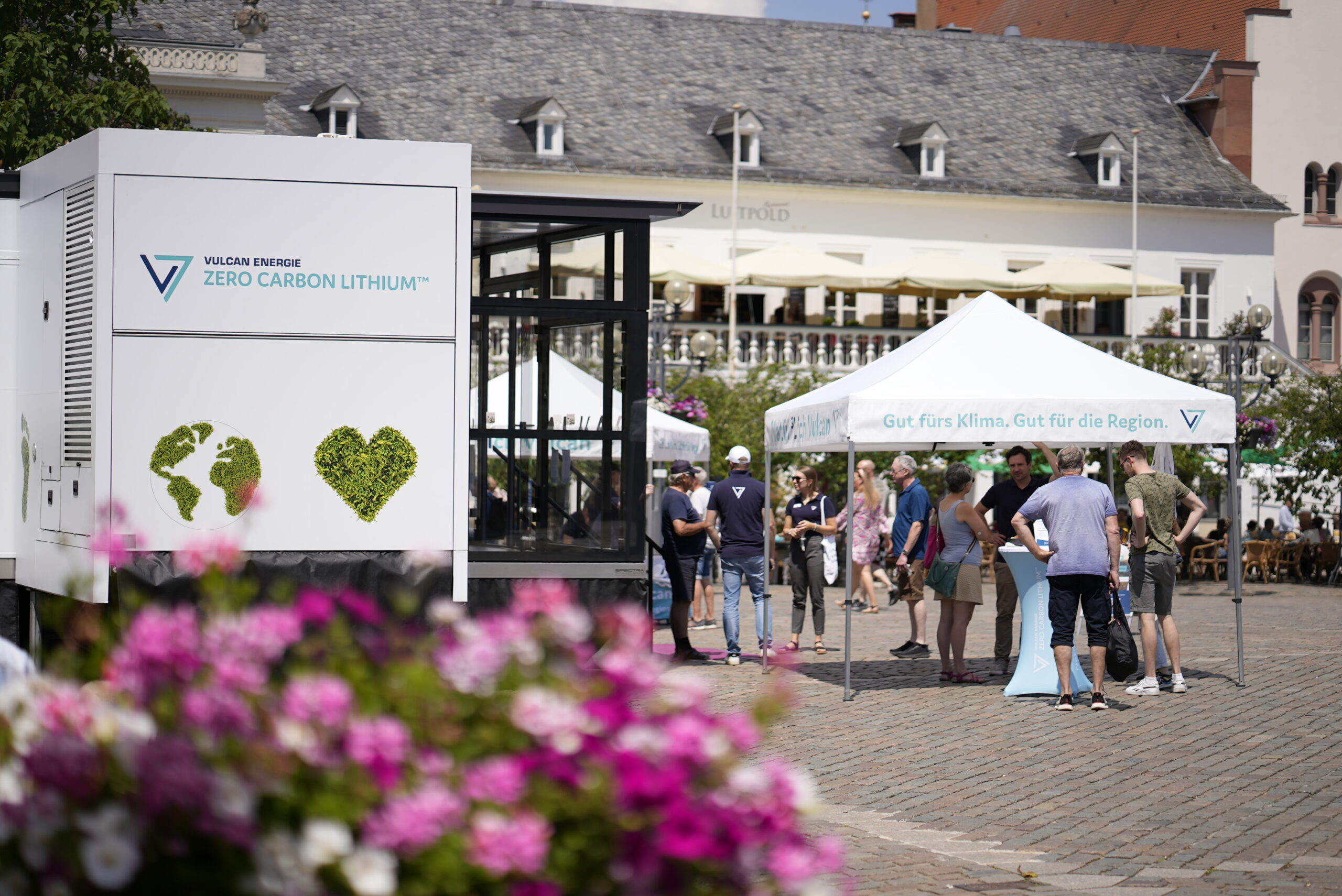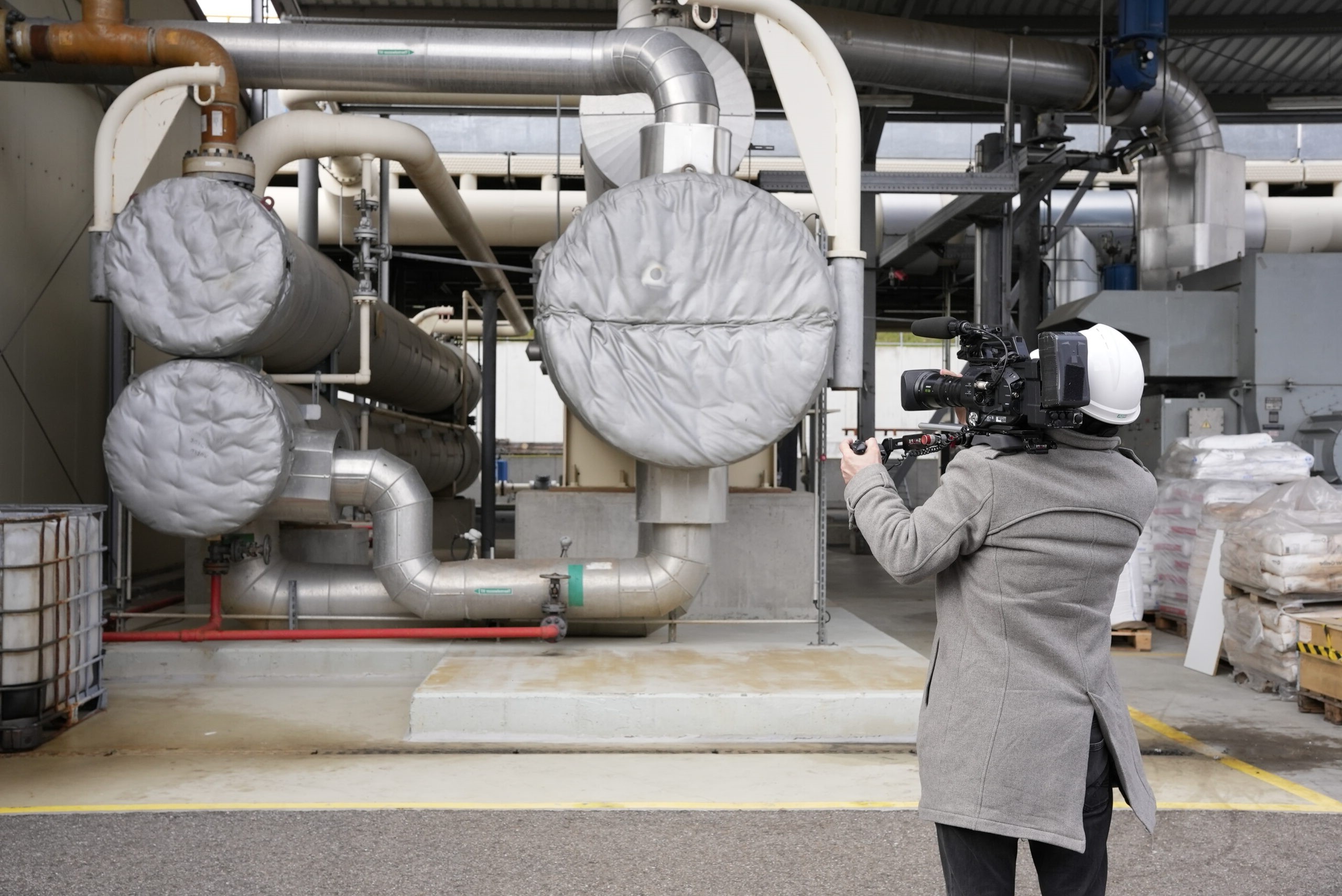Interview – “Everything stands still without the team!”
David, you manage the Schleidberg drilling site – can you briefly introduce yourself?
David Morgner: I am 37 years old, I was born and grew up in Delmenhorst in Lower Saxony, near the Hanseatic city of Bremen. I started my career in 2008 in the natural gas and oil industry, where I also completed my training as a mechatronics engineer at ExxonMobil until 2011. I then switched to workover drilling operations, where I trained until 2012. My original plan was to work as a mechatronics technician after my A-levels and then study petroleum engineering. But then the company offered me an alternative route to becoming a drilling supervisor, which really appealed to me. I already had my first insights into drilling operations during my apprenticeship, and ExxonMobil was looking for junior staff at the time. So I started the drilling master school in Celle in 2012 and graduated as a technician in 2014. Between 2020 and 2022, I worked in drilling operations on the Sakhalin Peninsula in Russia, both onshore and offshore. I finally joined Vercana in July 2024.
Did you like digging and drilling in the sandpit as a child?
David Morgner: As a child, I didn’t have any particular drilling ambitions, although I come from a mining family. My grandfather lived in Castrop-Rauxel and was the manager of a coal mine, while my father worked underground as an electrician – an almost traditional line of work in the Ruhr area (laughs). However, my father later decided to take a different path and studied electrical engineering. So although I come from a mining family, I chose my own path and didn’t allow myself to be influenced by my father’s or grandfather’s professions. Everything I’ve achieved, I’ve worked for myself.
You said that you actually come from the natural gas and oil industry.
What fascinates you personally about geothermal energy and why did you decide to switch to this field?
David Morgner: The project at Vulcan is extremely exciting and fits perfectly into today’s world, especially with the use of deep geothermal energy to generate heat for entire neighborhoods and industry. The combination with lithium extraction is particularly interesting. The Lionheart project, which comprises several drilling sites, is a unique part of a field development – I have never experienced anything like it in my career. Technically, there is little difference between drilling natural gas or oil wells and drilling a geothermal well. The biggest difference is that geothermal wells are deliberately drilled into geological fault zones, as these offer high flow rates and flow velocities. Such zones are avoided in natural gas and oil drilling. Overall, the project is very exciting and I hope to be able to develop personally through the challenges.
Explain in simple terms how a borehole is constructed.
David Morgner: Wells have a telescopic structure. The largest diameters start at the top of the well. We start with 26 inches. This corresponds to around 66 centimeters. Then we continue with a 17.5 inch section. Then we go to 12 ¼ inches and end at 8.5 inches in the reservoir area. This is the area where the well reaches the geological layers in which the geothermal energy is stored. The telescopic design makes technical sense as the highest pressures occur at the bottom, which leads to higher flow rates. In order not to lose this flow energy on the way up, the wells have the smallest diameter at the bottom. Another advantage of the telescopic structure is the stability of the well, so that it does not collapse and there are several barriers to the earth’s surface.
What safety measures do you take when drilling to protect the environment?
David Morgner: A drilling rig is a complex system with two main safety features: primary and secondary wellbore protection. The primary backup uses the drilling fluid to create a hydrostatic back pressure that stabilizes the borehole and prevents it from collapsing. Secondary protection is provided by a blowout preventer (BOP), which closes the borehole when the pressure rises, thus preventing uncontrolled gas or liquid leaks. To secure the groundwater-bearing layers, we use a standpipe tour down to a depth of 150 meters. Our first pipe run has a diameter of 20 inches. It is also known as an anchor pipe. The so-called wellhead is installed on it, which is crucial for securing the well during the drilling and production phase.
You have a lot of responsibility. What do you like about your job as a drilling supervisor?
David Morgner: The daily challenges are what make the job so exciting. There is no fixed routine because the borehole dictates the tasks. Of course, you can optimize the planning with the right data and comparative drilling, but even with the best preparation there are always unexpected challenges. This is exactly what makes the work so varied and interesting. You are constantly challenged both physically and mentally. That’s what makes this job truly unique.
How important is teamwork in your job?
David Morgner: Teamwork is crucial – you can’t do it without it. You work closely with fluid engineers, wellsite engineers, tool pushers, drillers and other experts. Everyone is an important part of the big picture, like a cog in a clockwork mechanism. If one component fails, everything comes to a standstill. That’s why teamwork is essential. It’s not just about the head driller, it’s about the whole team working well.
Apart from working at the drilling site, would you like to tell us what you do in your free time to relax and recharge your batteries?
David Morgner: “I’ve been an absolute mountain fan since I was a child. Although I originally come from the flatlands, I learned to ski at the age of three – I’m very proud of that (laughs). Today I live in the beautiful mountains and enjoy nature to the fullest. In winter I’m often on the ski slopes, in summer I like mountain biking and even take part in races. I also spend a lot of time in nature and enjoy hiking.
Thank you very much for taking the time to talk to us!











